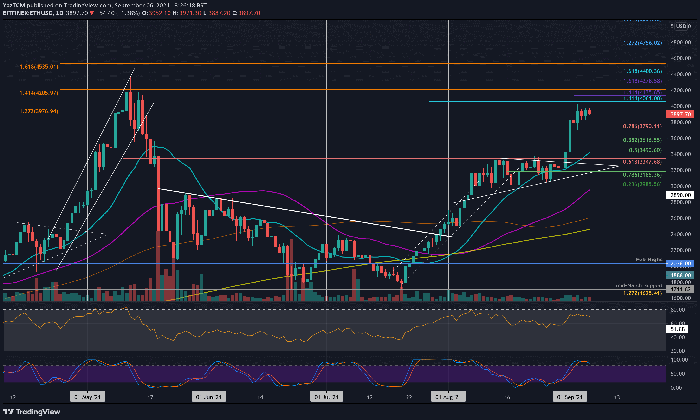Quantum Computing Bitcoin presents a groundbreaking challenge at the intersection of advanced technology and digital currency. As quantum computing technology continues to evolve, concerns over quantum computing security and its implications on Bitcoin’s cryptographic architecture grow increasingly pertinent. The possibility of Bitcoin ECC vulnerability looms, especially with the rise of Shor’s algorithm, which could threaten the very foundation of Bitcoin’s security. This urgency is encapsulated in Project Eleven’s Q-Day Prize, which incentivizes the hacking of Bitcoin’s cryptographic defenses, encouraging researchers to explore the cryptographic threats Bitcoin may face. With over 10 million Bitcoin addresses potentially at risk, the stakes have never been higher in the quest to understand and mitigate these futuristic threats.
The topic of Quantum Computing Bitcoin invites discussion on the vulnerabilities associated with cryptocurrency in a rapidly advancing technological landscape. This burgeoning field involves exploring how quantum computation might jeopardize the security of digital currencies like Bitcoin. Key areas of focus include the implementation of Shor’s algorithm, a quantum algorithm capable of compromising elliptic curve cryptographic systems and raising major concerns about Bitcoin’s data integrity. Additionally, Project Eleven’s initiative highlights the escalating threat of cryptographic breaches, drawing attention to the potential weaknesses in existing encryption methods utilized by Bitcoin and the implications for future security measures. As we delve deeper, understanding the intersection of quantum technology and cryptocurrency remains crucial for safeguarding digital assets.
Understanding Quantum Computing Security
Quantum computing represents a significant advancement in technology that poses a potential risk to current cryptographic systems. At the heart of this concern is the ability of quantum computers to perform complex calculations at unprecedented speeds, especially those involving algorithms that traditional computers would find impractical or impossible. This is particularly relevant in the context of Bitcoin, which relies heavily on elliptic curve cryptography (ECC) for the security of its transactions. As these quantum technologies evolve, understanding the implications for quantum computing security can help stakeholders in the cryptocurrency sector prepare for future threats.
To mitigate potential vulnerabilities, it is essential to comprehend how quantum computing could exploit weaknesses in ECC specifically used in Bitcoin. Shor’s algorithm, a quantum algorithm, is especially capable of factoring large integers and solving the discrete logarithm problem, effectively undermining the ECC that safeguards Bitcoin wallets. With initiatives like Project Eleven’s Q-Day Prize, the community is actively engaged in testing these theories, propelling us toward a clearer understanding of how quantum computing may threaten existing financial systems.
The Bitcoin ECC Vulnerability
The assessment of Bitcoin’s vulnerability to quantum computing revolves around its dependence on ECC, which is widely considered secure against classical computing methods. However, quantum capabilities complicate this perception. The potential for a quantum computer to utilize Shor’s algorithm poses existential risks, as it can feasibly recover private keys from public addresses, thereby jeopardizing user funds. The challenge presented by Project Eleven serves as a pivotal moment for bitcoin enthusiasts and developers alike, as it emphasizes the urgency to evaluate and strengthen Bitcoin’s current cryptographic frameworks.
This tension is exacerbated by the fact that millions of Bitcoin addresses have public keys exposed, making them particularly susceptible to exploitation. An estimated 6.2 million BTC, valued at roughly $500 billion, face an increasing level of risk as quantum advancements occur. Therefore, the industry’s focus should not only rest on the theoretical implications of quantum threats but also encourage proactive measures to reinforce Bitcoin’s ECC security against potential quantum breaches.
The Implications of Shor’s Algorithm on Bitcoin
Shor’s algorithm stands at the forefront of discussions around quantum computing’s impact on Bitcoin. This algorithm’s ability to efficiently factor large integers makes it a formidable adversary for traditional cryptographic methods that underpin Bitcoin’s transaction security. If successfully applied on a sufficiently advanced quantum computer, Shor’s algorithm could theoretically dismantle the cryptographic protections of Bitcoin, opening the pathway for hackers to compromise wallets and siphon funds. The Q-Day Prize initiated by Project Eleven highlights these concerns by incentivizing the demonstration of this vulnerability.
As researchers and quantum scientists experiment with applying Shor’s algorithm on quantum hardware, the urgency for Bitcoin developers to explore quantum-resistant alternatives becomes clear. This ongoing exploration fosters innovative solutions that may safeguard Bitcoin from potential cryptographic threats posed by future quantum computing advancements, ensuring its longevity and security in an era where such technology becomes mainstream.
The Q-Day Prize and Its Significance
The Q-Day Prize established by Project Eleven is more than just a financial incentive; it serves as a rallying call for the cryptocurrency community to confront quantum threats proactively. By offering a reward for the successful application of Shor’s algorithm against Bitcoin’s ECC, the prize not only raises awareness about potential vulnerabilities but also catalyzes research in quantum computing security. The implications of this challenge are vast, prompting developers and researchers alike to delve deeper into understanding how cryptography can withstand advanced quantum attacks.
In essence, the significance of the Q-Day Prize lies in its ability to shift the conversation from theoretical discussions on quantum computing threats to practical experimentation and demonstration. As teams worldwide participate, the competition is expected to yield insights into ECC vulnerabilities and stimulate the development of quantum-resistant algorithms, furthering the overall security landscape of Bitcoin and potentially other cryptocurrencies as well.
Cryptographic Threats to Bitcoin and Their Future
The advent of quantum computing brings a new dimension to the existing cryptographic threats that Bitcoin encounters. While phishing scams and technical exploits remain immediate concerns, the looming threat of quantum attacks introduces a pressing need for a reassessment of Bitcoin’s cryptographic strategies. With the growing accessibility of quantum computing resources and advancements evidenced by companies like Google, IBM, and PsiQuantum, the traditional safeguards protecting Bitcoin may soon be outmatched. Consequently, it has become essential for practitioners within the crypto ecosystem to stay abreast of these developments.
Looking to the future, it is crucial to explore potential enhancements and alternatives to existing cryptographic measures. Researching post-quantum cryptography can obscure and fortify Bitcoin’s defenses as we move into a new technological era. The importance of ongoing discourse and research efforts cannot be overstated, as they will ultimately determine how resilient Bitcoin remains against emerging cryptographic threats posed by powerful quantum computing capabilities.
The Current State of Quantum Computing Advancements
The current landscape of quantum computing advancements shows remarkable progress that has far-reaching consequences for Bitcoin and other cryptocurrencies. Tech giants like Google, IBM, and Microsoft are leading the way in developing quantum processors and algorithms, marking significant milestones across the field. Access to these quantum capabilities is increasingly available through cloud computing options, allowing a wider array of researchers to experiment with encrypted systems, including Bitcoin’s ECC. This democratization of quantum computing technology raises both excitement and concern about the potential ramifications for digital assets.
Notably, recent breakthroughs like Google’s ‘Willow’ chip have illustrated just how far quantum computing has come, performing calculations in minutes that would take traditional supercomputers an incomprehensible amount of time to accomplish. As these capabilities become accessible, the risk to Bitcoin’s cryptographic framework deepens. The ongoing advancements highlight an essential duality in the field: while progress offers new opportunities for innovation, it also insists that the community confront the burgeoning quantum threat head-on. Staying informed and adaptable is paramount as quantum computing continues to evolve.
The Future of Bitcoin in a Quantum Era
As we contemplate the future of Bitcoin in a potential quantum era, the importance of preparing for the integration of quantum technology into financial systems cannot be understated. All stakeholders, including developers, miners, and users, must acknowledge the reality of quantum computing’s capabilities and the potential it holds to disrupt existing paradigms. Preparing Bitcoin for a quantum future entails revisiting its foundational cryptographic practices while simultaneously exploring new methods for transaction security that can withstand quantum attacks.
Through active engagement in dialogue and innovation, the cryptocurrency community can build a resilient infrastructure that ensures Bitcoin’s longevity in the face of quantum advances. Initiatives like Project Eleven’s Q-Day Prize serve as reminders that the challenges posed by quantum computing are not hypothetical but a tangible threat that requires immediate and ongoing attention. As we venture further into this uncharted territory, collaboration and proactive measures will be essential to protect Bitcoin’s integrity and its users in a rapidly evolving digital landscape.
Preemptive Measures Against Quantum Threats
In anticipation of the challenges that quantum computing poses to Bitcoin and its cryptographic framework, preemptive measures are essential. This includes embracing innovations in post-quantum cryptography, which aims to secure digital transactions using algorithms that are computationally resistant to quantum-enabled decryption. By adopting these hybrid approaches, Bitcoin can potentially shore up defenses against future quantum incursions, thus preserving trust among its users.
Furthermore, continual education within the cryptocurrency community about the implications of quantum threats is crucial. Conducting workshops, developing courses, and promoting resources will empower developers and users alike to navigate the complexities associated with quantum technology. Such proactive engagement promotes a culture of preparedness, an vital aspect of ensuring that Bitcoin remains a secure and viable asset in a world where quantum computing capabilities continue to expand.
Collaborative Research Opportunities in Quantum Computing
As the reality of quantum threats unfolds, collaborative research opportunities in quantum computing become increasingly vital for the Bitcoin ecosystem. Universities, research institutions, and private organizations should work together to devise solutions that bolster Bitcoin’s cryptographic defenses against these emerging threats. Sharing knowledge, resources, and expertise can accelerate the development of quantum-resistant technologies and ensure the community is equipped to respond swiftly to new advancements in quantum computing.
Moreover, fostering public-private partnerships focused on addressing quantum security challenges can enhance the collective understanding of potential vulnerabilities within Bitcoin. By pooling expertise and resources, stakeholders can drive innovation toward more robust protection strategies and maintain the integrity of the Bitcoin network. Engaging researchers and professionals in dialogue will pave the way for breakthroughs that reinforce Bitcoin’s resilience as we navigate the uncharted waters of quantum computing.
Frequently Asked Questions
Can quantum computing break Bitcoin’s ECC vulnerability using Shor’s algorithm?
Yes, quantum computing has the potential to break Bitcoin’s ECC vulnerability using Shor’s algorithm. This algorithm can factor large integers efficiently, which could compromise the security of the Elliptic Curve Digital Signature Algorithm (ECDSA) used in Bitcoin. Project Eleven’s Q-Day Prize is encouraging researchers to test this hypothesis by cracking ECC publicly exposed keys with a quantum computer.
What is the Q-Day Prize related to quantum computing and Bitcoin?
The Q-Day Prize is a challenge initiated by Project Eleven, offering 1 Bitcoin to the first individual or team that successfully uses Shor’s algorithm on a quantum computer to break an elliptic curve cryptographic key. This initiative aims to assess the current risks posed by quantum computing to Bitcoin’s security, particularly focusing on ECDSA.
How does Shor’s algorithm pose a cryptographic threat to Bitcoin?
Shor’s algorithm presents a cryptographic threat to Bitcoin by enabling quantum computers to efficiently factor large numbers and solve discrete logarithm problems. This capability could undermine the security of Bitcoin’s elliptic curve cryptography, allowing potential attacks on the cryptographic keys that protect Bitcoin transactions and addresses.
What are the implications of advancements in quantum computing on Bitcoin’s cryptographic security?
Advancements in quantum computing could significantly impact Bitcoin’s cryptographic security. As quantum technology evolves, the ability to break ECC keys through algorithms like Shor’s becomes increasingly likely, threatening the integrity of Bitcoin transactions and user privacy if appropriate countermeasures are not implemented.
What measures are being taken to address quantum computing threats to Bitcoin?
Efforts to address quantum computing threats to Bitcoin include ongoing research initiatives like Project Eleven’s Q-Day Prize, which seeks practical demonstrations of ECC vulnerabilities. Additionally, the crypto community is exploring the adoption of post-quantum cryptographic algorithms that could protect Bitcoin from potential quantum attacks in the future.
Is the threat of quantum computing to Bitcoin immediate or theoretical?
While the threat of quantum computing to Bitcoin is not considered immediate, leading experts acknowledge its potential risk. Project Eleven highlights this risk by promoting open experimentation to quantify how quantum advancements could affect Bitcoin’s cryptographic security in the coming years.
What is the current status of quantum computing technology in relation to Bitcoin security?
Current quantum computing technology is still evolving, with no real-world ECC key having been cracked to date. However, rapid advancements, including contributions from major companies like Google and IBM, suggest that the threat to Bitcoin’s security may become more pressing as capabilities improve over the coming years.
| Key Points |
|---|
| Project Eleven is testing the security of Bitcoin against quantum computing vulnerabilities through a competition offering 1 Bitcoin as a prize for successfully applying Shor’s algorithm on quantum hardware to break ECC keys. |
| The challenge specifically targets the ECDSA and aims to demonstrate quantum computing’s potential threats to Bitcoin’s cryptography in practical scenarios. |
| Participants must exclusively use quantum computers without any classical assistance to demonstrate any capable attacks, even if partial. |
| More than 10 million Bitcoin addresses could be at risk due to exposed public keys based on current quantum advancements, potentially affecting approximately 6.2 million BTC valued at around $500 billion. |
| Major advancements in quantum computing by companies such as Google and IBM suggest that while an immediate threat isn’t seen, caution is warranted as capabilities improve. |
| The ongoing quantum debate considers various viewpoints about the immediate risks, with some experts urging for proactive measures and others believing current encryption is still strong enough. |
Summary
Quantum Computing Bitcoin is a critical discussion point, underscored by Project Eleven’s recent competition aimed at testing Bitcoin’s cryptographic robustness against quantum attacks. The challenge not only incentivizes breakthroughs in quantum computing but also highlights the potential risks facing Bitcoin, particularly in light of rapid advancements in quantum technology. As the competition unfolds, the ongoing discourse surrounding the intersection of quantum computing and Bitcoin security gains further significance, compelling participants and stakeholders to stay informed and prepared for potential vulnerabilities.
Quantum Computing Bitcoin stands at the forefront of a pivotal intersection between advanced technology and cryptocurrency security. As quantum computing progresses, concerns about its ability to undermine Bitcoin’s cryptographic measures, specifically its reliance on Elliptic Curve Cryptography (ECC), have surged. Notably, Project Eleven has launched the Q-Day Prize, offering a reward for anyone who can demonstrate the potential of Shor’s algorithm to exploit Bitcoin ECC vulnerability. With over 10 million Bitcoin addresses potentially exposed, the cryptographic threats to Bitcoin’s security are no longer mere academic discussions; they are becoming pressing realities in this fast-evolving tech landscape. As participants gear up to challenge conventional security paradigms, the implications for Bitcoin and digital currency at large could be profound.
The emergence of quantum computing technologies has triggered a reevaluation of traditional security frameworks within the cryptocurrency realm, particularly concerning the Bitcoin ecosystem. This innovative field, often hailed as the next frontier in computational power, presents both opportunities and substantial risks to established digital currencies. A notable initiative, known as Project Eleven, has catalyzed interest in real-world applications of quantum algorithms, especially regarding cryptographic protocols like ECC. Given the substantial investment in quantum research and development by major tech players, the ramifications for Bitcoin could be drastic, reflecting a necessary shift in our understanding of cryptographic resilience against quantum threats. As discussions about the potential for quantum breakthroughs continue, the urgency for the cryptocurrency community to adapt becomes ever more apparent.














